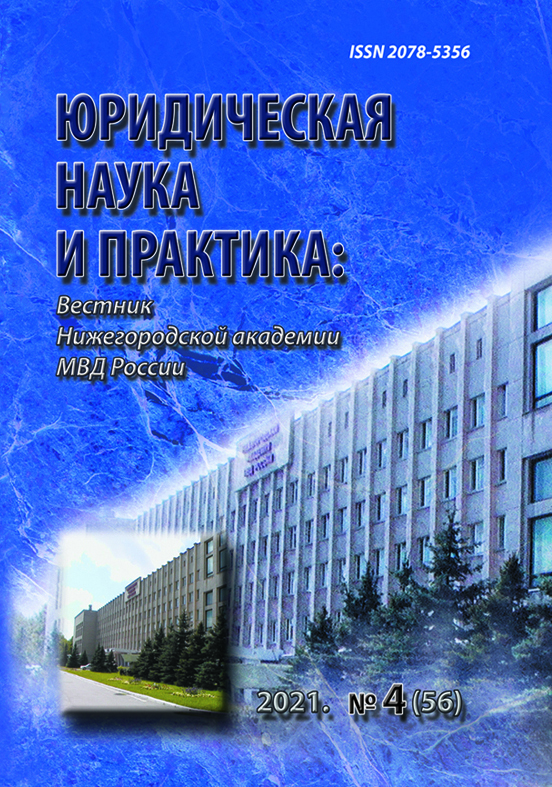Russian Federation
The article analyzes the processes associated with the creation of a new scientific specialty “criminal law sciences” from the standpoint of understanding the essence of the criminalistic culture of law enforcement and its connection with related branches of scientific knowledge. Emphasis is placed on tracing the complexity factor in the structure of the new scientific specialty. Some hypotheses are expressed about the prospects for the development of a scientific specialty and approaches to optimizing the complex of criminal law knowledge and the interrelated sphere of practical activity.
criminal law sciences, object and subject of criminal law sciences, criminalistic culture of law enforcement, complexity of criminal law and forensic knowledge, expert factor of law enforcement, criminal reality, economic and criminal reality, methodological and tactical and technical component of the process of proving, prospects of formation and development criminal law sciences
1. Zhuravlev S. Yu., Krepysheva S. K. Forensic techniques and tactics: the context of modern understanding of the role of forensic science in legal activity and legal education. Modern criminalistics: problems, trends, prospects: materials of the International Scientific and Practical Conference (December 22, 2015). Moscow: MAKS Press Publ., 2015. (In Russ.)
2. The theory of evidence in the Soviet criminal process / R. S. Belkin [and others]. 2nd ed., rev. and add. Moscow: Jurid. lit. Publ., 1973. 736 p. (In Russ.)
3. Zhuravlev S. Yu. Forensic culture and the implementation of the expert function in the process of law enforcement. National and international trends and prospects for the development of forensic examination: collection of reports of the All-Russian scientific conference with international participation, Nizhny Novgorod, May 20-21, 2021. Nizhny Novgorod: UNN Publ., 2021. (In Russ.)
4. Korukhov Yu. G. Formation of the general theory of forensic examination: material for the Academic Council of VNIISE. Moscow, 1989. (In Russ.)
5. Interdisciplinary training as a form of conducting exercises in a specialized university of the Ministry of Internal Affairs of Russia: study guide / ed. by S. Yu. Zhuravlev, S. A. Kuzmenko. N. Novgorod, 2009. 283 p.
6. Zhuravlev S. Yu. Forensic culture of interdisciplinary education. Legal science and practice: Bulletin of the Nizhny Novgorod Academy of the Ministry of Internal Affairs of Russia, 2020, no. 2 (50).
7. Borulenkov Yu. P. Object and subject of legal knowledge. Law and Law, 2015, no. 7.
8. Criminal procedure. Problematic lectures / ed. by V. T. Tomin, I. A. Zinchenko. Moscow: Yurayt Publ., 2013.
9. Zhuravlev S. Yu. Criminalistic culture of law enforcement: content and discussion issues. Criminalistics: yesterday, today, tomorrow, 2020, no. 1 (13).
10. Lubin A. F. Forensic modeling of criminal activity: some problems and solutions. Criminalistic means of ensuring activities to identify and investigate crimes of economic and corruption orientation: collection of articles / ed. by A. F. Lubin. Kazan: Buk Publ., 2018.












